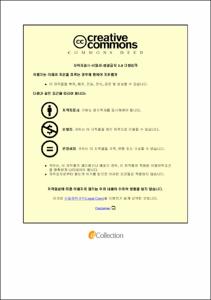카이스트 학생들이 지각한 모의 양육태도가 대학생활적응과 학업스트레스에 미치는 영향
- Abstract
- The study discusses the impacts of maternal child-rearing attitudes perceived by the students at KAIST on adaptation to college and academic stress. This study helps the students to develop self-awareness through self-reflection and to improve the quality of college life by preventing the school maladjustment problems.
The main topics of the study are as follows:
(1) Do the maternal child-rearing attitudes affect adaptation to college?
(2) Do the maternal child-rearing attitudes affect academic stress?
(3) What is the relationship between adaptation to college and academic stress, related to the maternal child-rearing attitudes?
202 students at South Korea's Science and Technology university(KAIST) in Daejeon participate in the research.
Three different instruments measure each variable: (1) The maternal child-rearing attitudes scale developed by Seong-shim Oh and Jong-seong Lee(1982), (2) Student adaptation to college questionnaire(SACQ) developed by BeKer and Siryk(1984), translated into Korean by Jin-won Hyeon and finally revised by Hwa-jin Cho, (3) Academic stress scale developed by Mi-hyang Oh and Seong-moon Cheon(1993).
SPSS Statistic V23 analyzes the data. The frequency and the percentage produces the sampling distribution of a given population. We also implement Cronbach alpha, correlation analysis, T-test, multiple regression analysis, etc.
The results of the study are as follows;
First, the difference between genders on the impact of the maternal child-rearing attitudes shows statistical significance in adaptation to college, but no statistical significance in academic stress. The means of the female students' affectionate-hostile maternal child-rearing attitude and social adaptation to college are higher than those of the male students'.
Second, the maternal child-rearing attitudes impacts remarkably on adaptation to college. Among the subcategories of maternal child-rearing attitudes, the Affectionate-Hostile influences general adaptation to college. Also, it has positive influence on social adaptation. The Rational-Irrational subcategory has no influence on the students' general adaptation to college, but has positive influence on academic adaptation. The Autonomous-Controlling subcategory has no impact on the students' general adaptation to college.
Third, the maternal child-rearing attitudes demonstrate the statistical significance on academic stress. The Rational-Irrational has negative influence on general academic stress and all the subcategories; stress resulted from grades, test performance, the class, and learning. The Affectionate-Hostile and Autonomous-Controlling have no influence on academic stress.
Fourth, adaptation to college correlates to academic stress. Stress resulted from grades influences negatively on general adaptation to college, including academic adaptation, social adaptation and personal affective adaptation. Stress from the learning has negative impact on academic adaptation. Stress from test performance and the class shows no relation with general adaptation to college.
Finally, the maternal child-rearing attitudes demonstrate the statistically significant impacts on both adaptation to college and academic stress. The Affectionate-Hostile have positive influence on general adaptation to college. Stress from the grades influences negatively on general adaptation to college and all the subcategories. Stress from learning has negative influence, but stress from test performance and the class has no influence, on academic adaptation. Therefore, the affectionate maternal child-rearing attitude increases adaptation to college and the rational attitude lowers academic stress, which emphasizes the importance of the affectionate and rational maternal child-rearing attitudes.
The study focuses not on academic-related but on affective-related research of the students at KAIST. Utilizing this data improves the quality of the students' college lives at KAIST and also helps re-examine the desirable maternal child-rearing attitudes.
- Issued Date
- 2018
- Awarded Date
- 2018.2
- Type
- Dissertation
- Publisher
- 부경대학교
- Affiliation
- 부경대학교 교육대학원
- Department
- 교육대학원 교육컨설팅학과
- Advisor
- 강버들
- Table Of Contents
- 초록 ⅰ
목차 ⅳ
Ⅰ.서론 1
1.연구의 목적 및 필요성 1
2.연구 문제 4
3.용어의 정의 4
Ⅱ.이론적 배경 6
1.모의 양육태도 6
2.대학생활적응 12
3.학업스트레스 15
4.선행연구 고찰 20
Ⅲ.연구 방법 25
1.연구대상 25
2.연구도구 25
3.연구절차 29
4.자료분석 30
Ⅳ.연구 결과 31
1.대상자의 인구통계학적 특성 31
2.성별에 따른 모의 양육태도와 대학생활적응 및 학업스트레스 간의 차이 35
3.모의 양육태도가 대학생활적응에 미치는 영향 38
4.모의 양육태도가 학업스트레스에 미치는 영향 40
5.모의 양육태도와 대학생활적응 및 학업스트레스와의 관계 42
Ⅴ.결론 및 제언 51
1.논의 및 결론 51
2.제언 61
참고문헌 63
부록 71
- Degree
- Master
- Files in This Item:
-
-
Download
 카이스트 학생들이 지각한 모의 양육태도가 대학생활적응과 학업스트레스에 미치는 영향.pdf
기타 데이터 / 898.59 kB / Adobe PDF
카이스트 학생들이 지각한 모의 양육태도가 대학생활적응과 학업스트레스에 미치는 영향.pdf
기타 데이터 / 898.59 kB / Adobe PDF
-
Items in Repository are protected by copyright, with all rights reserved, unless otherwise indicated.